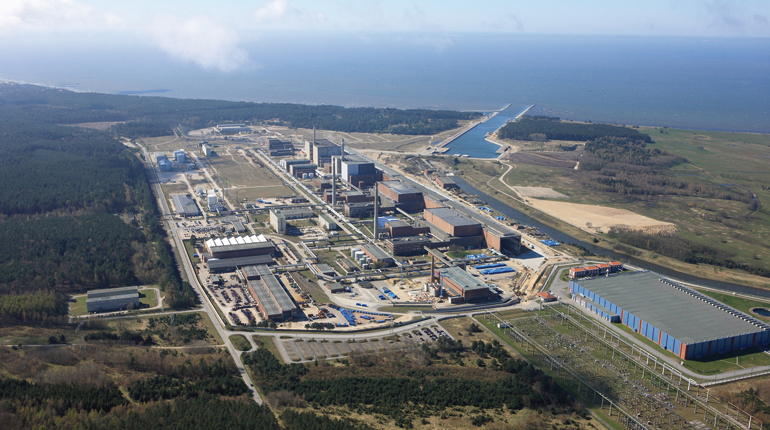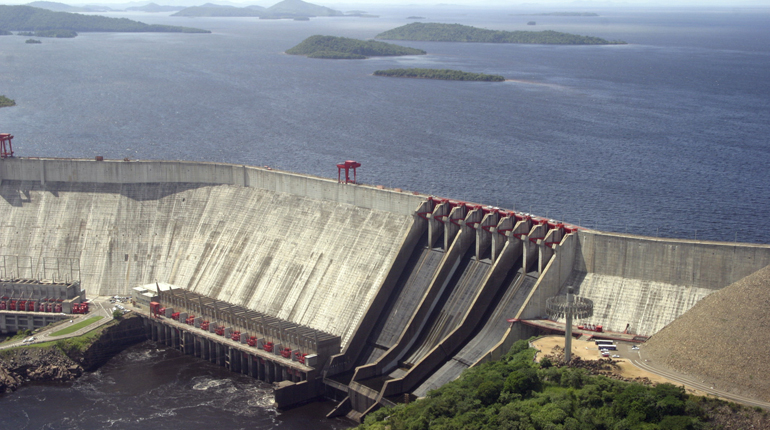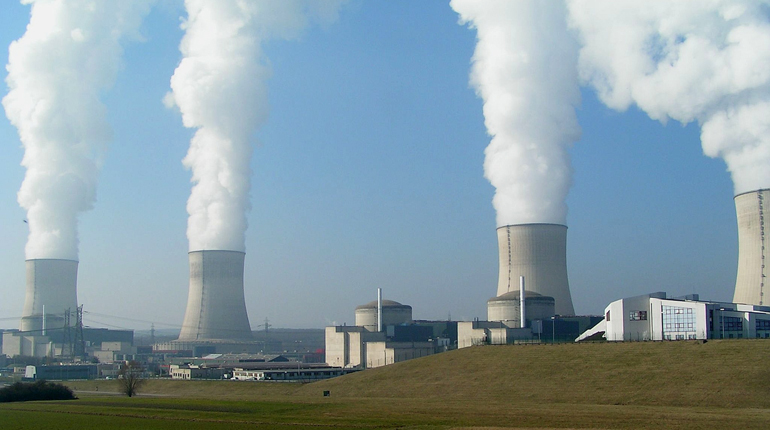 The landfall of the Nord Stream pipeline in Germany. Some fear the country may be too dependent on Russian gas. (Nord Stream)
The landfall of the Nord Stream pipeline in Germany. Some fear the country may be too dependent on Russian gas. (Nord Stream)
Dutch gas infrastructure company Gasunie is planning to build an LNG terminal in Germany, where it expects gas demand to soar in the coming years.
Speaking to Natural Gas Daily on the sidelines of the International LNG summit in Cannes on Tuesday, Marcel Tijhuis, senior project manager at Gasunie, said the company was considering locations such as Hamburg and others further east along the German coast as potential spots for a 4 billion cubic metre per year terminal.
Gasunie plans to cooperate with "one or two" German companies to make it a "German project", Tijhuis added. The Dutch company then plans to invest in the facility as well as co-developing and operating it. However, Gasunie has not decided on the exact nature of the project.
"It could be a small-scale terminal or a combination of an import terminal with small-scale [transport] facilities," Tijhuis told NGD.
Gasunie is in discussion with several ports, suppliers and potential customers to evaluate market demand and policy support. The company expects further regulation, triggered by Germany’s nuclear phase-out and growing public opposition to coal, to stimulate gas demand in Europe’s largest economy.
Imports from the Netherlands, which account for around 20% of Germany’s 80 bcm/y of demand, are expected to decline as further cuts are made to production at the Groningen field.
German company Bomin Linde LNG is also planning to build a small-scale terminal in Hamburg, which it aims to bring online in 2017 or 2018. The company supplies LNG for a ferry that operates between Emden and Borkum – the first sea-going LNG-fuelled vessel in Germany.
Small-scale LNG is seen as a growth opportunity, with Germany well placed to absorb excess cargoes as the global market for the fuel is becoming glutted. That said, E.On pulled out of a plan to build an LNG terminal with RWE at Wilhelmshaven in 2008, and the project was shelved in 2011.
Even though that project failed, many feel Germany would benefit from diversifying its supply sources.
Russian dependence
Russia has long been Germany’s major supplier, with German utilities among Gazprom’s largest European costumers. Some fear Germany is too dependent on Russian gas, a situation that could worsen if Gazprom succeeds in its plan to expand the Nord Stream pipeline.
"German politicians do not want to increase their dependence on Russian imports. Solar and wind energy are one alternative, but not the only possibility for power generation in Germany," Tijhuis said.
Nord Stream 2 would double the capacity of the original 55 bcm/y dual pipeline, which runs under the Baltic Sea. It has won support from a number of German energy companies despite political opposition.
"If Nord Stream 2 comes, that would change the situation. So what we need is support from the federal government and not just regional governments – who are very supportive of the project," Tijhuis continued.
Additional challenges facing Gasunie include the low global oil price, which makes investing in alternative fuels for bunkering or road transport less attractive. But Gasunie said the low oil price would not hinder the terminal.
"You need to go ahead irrespective of oil prices – circumstances and prices change frequently, but if you have a few customers that commit, you can go ahead with the project," Tijhuis added.
Bunker mentality
Tessa Rodewaldt, deputy managing director at the German Maritime LNG Platform, an association of companies and ports targeting cleaner shipping, said the prospects for LNG as a shipping fuel are being hampered by local authorities and a lack of industry standards.
"There is a certain amount of ignorance among German authorities – a lack of knowledge about LNG – which has led to the approval process being far from optimal at the moment," she told NGD.
"Authorities still question the maturity of the industry and its safety – all of which are myths that we have to work against," she added.
But even without a German terminal, LNG could supply the country’s growing bunkering market. Industry experts are lobbying the German state – which boasts a fleet of more than 700 ships – to be a first mover into LNG as shipping fuel.
Rodewaldt’s organisation is working with the government on new tendering guidelines that would allow new public ships to be fuelled by LNG.
However, little progress has been made. "We are working with the government to change the tendering process [for new ships], and so far LNG has not been considered at all," she said.
On a more positive note, the German government is drafting guidelines for funding that will cover up to 40% of the additional costs of equipping vessels with dual fuel or gas-only engines, which cost on average around 35% more than oil-fuelled engines.







